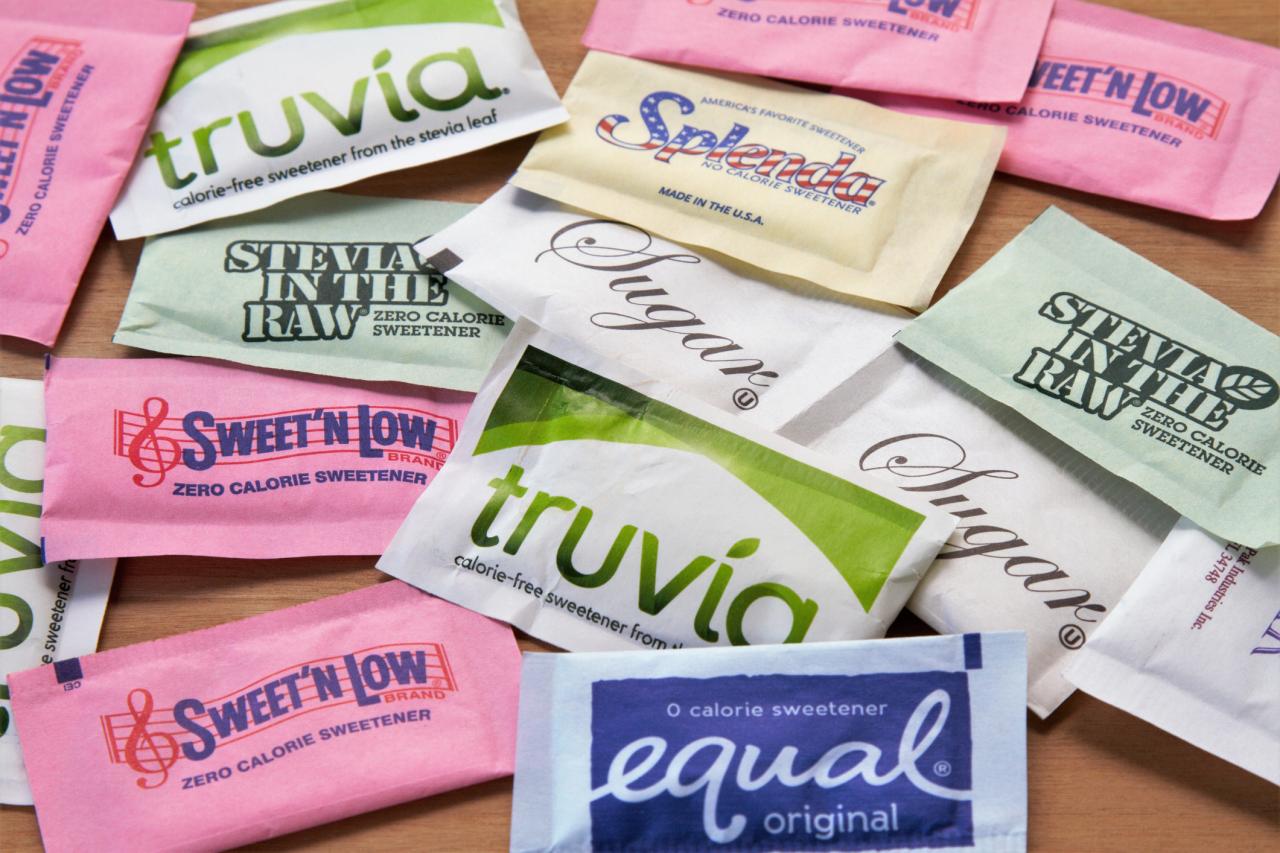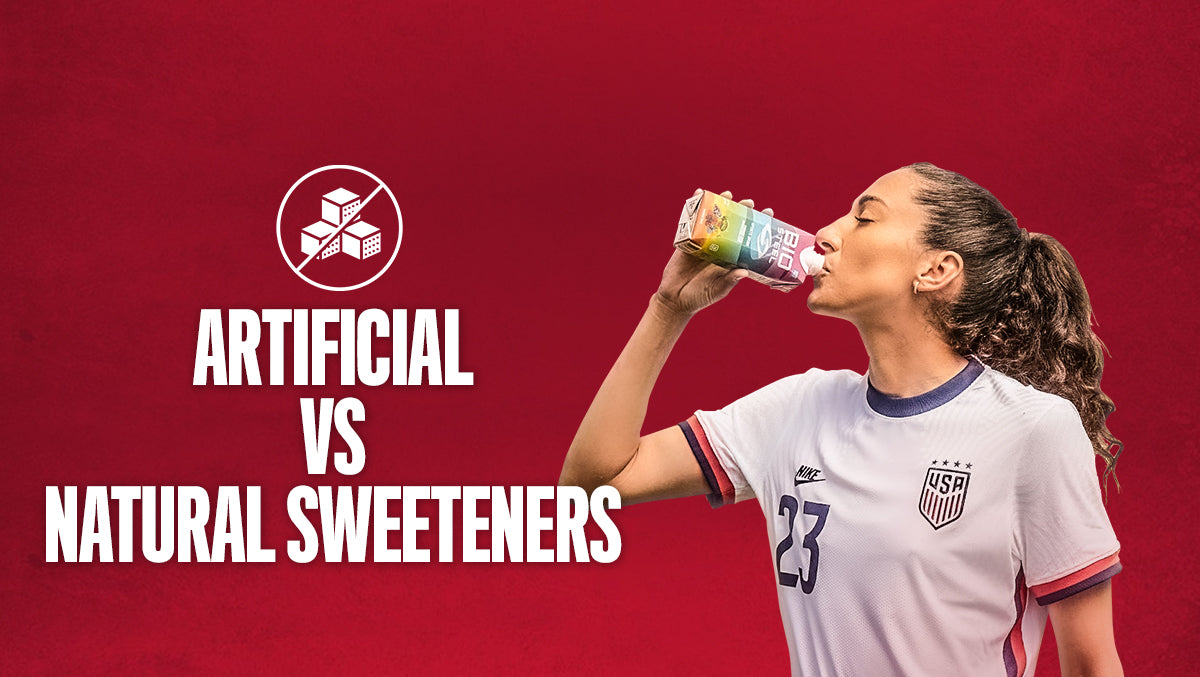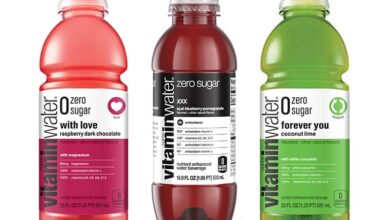
Can Your Body Tell the Difference Between Natural and Artificial Sugar?
Can your body tell the difference between natural and artificial sugar? It’s a question that’s sparked debate among health enthusiasts and scientists alike. We all know sugar provides energy, but how our bodies process natural sugars from fruits and vegetables differs from the way it handles artificial sweeteners like aspartame and sucralose.
This difference can have implications for our health, weight, and even our gut microbiome. Let’s delve into the fascinating world of sugar and explore how our bodies respond to these sweet substances.
From the way our taste buds perceive sweetness to the metabolic pathways that break down sugars, we’ll uncover the science behind these differences. We’ll also explore the potential health implications of both natural and artificial sugars, considering their impact on blood sugar levels, weight management, and chronic diseases.
So, buckle up, because we’re about to embark on a journey into the sweet science of sugar.
Sugar and the Body

Sugar, in its various forms, plays a crucial role in our bodies, providing the essential energy needed for our daily activities. However, understanding how our bodies process different types of sugars, including natural and artificial ones, is vital for maintaining optimal health.
While your body processes natural and artificial sugars differently, it’s the overall calorie intake that ultimately impacts your weight. So, if you’re trying to shed those extra pounds, you might be wondering if does meal timing matter for losing weight.
The answer is, it can, but it’s not the only factor. Ultimately, understanding your body’s individual response to different sugars and finding a healthy eating pattern that works for you is key.
Sugar Metabolism
The body’s primary source of energy is glucose, a simple sugar that is readily absorbed into the bloodstream. Glucose is obtained from the breakdown of carbohydrates, including starches and sugars, that we consume through food. This process of breaking down carbohydrates into glucose is called digestion.
During digestion, enzymes in our saliva and digestive tract break down complex carbohydrates into simpler sugars, primarily glucose.
Our bodies are pretty smart, but can they really tell the difference between a sugar molecule from a fruit and one from a lab? It’s a question that makes me think about all the other processed foods we consume, like the plant-based meat alternatives that are popping up everywhere.
Is it healthier to eat something like a Beyond Burger, or are the real deal burgers still the way to go? It’s a question worth exploring, and you can find some interesting insights in this article about is fake meat healthier than the real thing.
Maybe the answer to the sugar question is similar – it’s not just about natural versus artificial, but about the overall context and quality of the food we eat.
- Digestion and Absorption:Once glucose is released from the breakdown of carbohydrates, it is absorbed into the bloodstream through the small intestine. This process involves specialized transporter proteins that move glucose across the intestinal lining.
- Glycolysis:Glucose enters the bloodstream and is transported to cells throughout the body. Once inside the cells, glucose undergoes a series of biochemical reactions known as glycolysis. Glycolysis is the first step in the breakdown of glucose and produces a small amount of energy in the form of ATP (adenosine triphosphate), the body’s primary energy currency.
- Krebs Cycle and Electron Transport Chain:If oxygen is available, the pyruvate produced during glycolysis enters the mitochondria, the powerhouses of the cells. Here, it undergoes the Krebs cycle, also known as the citric acid cycle, and the electron transport chain. These processes further break down pyruvate, releasing significant amounts of ATP, the energy required for cellular functions.
Natural vs. Artificial Sugars, Can your body tell the difference between natural and artificial sugar
Natural sugars, such as those found in fruits, vegetables, and dairy products, are often accompanied by fiber and other nutrients that can slow down the absorption of sugar into the bloodstream. Artificial sugars, on the other hand, are chemically synthesized and typically lack these additional nutrients.
While artificial sugars can provide sweetness without contributing calories, they can still have potential health implications.
- Natural Sugars:Natural sugars are typically found in combination with fiber and other nutrients, which can help regulate blood sugar levels. These sugars are generally considered to be a healthier choice compared to artificial sugars.
- Artificial Sugars:Artificial sugars, such as aspartame, sucralose, and saccharin, are often used as substitutes for natural sugars in processed foods and beverages. While they can provide sweetness without calories, they can still stimulate the release of insulin, which can lead to changes in blood sugar levels and potential health issues.
You might be surprised to learn that your body can’t actually tell the difference between natural and artificial sugar. It all gets metabolized the same way, which is why I find it so fascinating that many people still believe there’s a huge difference.
That’s just one of the many things I’ve learned as a registered dietitian, and if you’re interested in more surprising takeaways about the profession, check out this article 3 surprising takeaways about being a registered dietitian. Ultimately, the key is to focus on overall sugar intake, regardless of the source, and prioritize a balanced diet that includes plenty of whole foods.
Natural Sugars

Natural sugars are sugars found in whole foods, such as fruits, vegetables, and whole grains. These sugars are often referred to as “simple sugars” because they are readily absorbed by the body. While all sugars provide energy, natural sugars are often accompanied by other nutrients, such as fiber, vitamins, and minerals, which can contribute to overall health.
Examples of Natural Sugars
Natural sugars are present in a variety of foods. Here are some examples:
- Fruits: Fruits like bananas, oranges, apples, and berries contain fructose, a type of natural sugar.
- Vegetables: Vegetables like carrots, beets, and sweet potatoes contain sucrose, a natural sugar that is also found in table sugar.
- Whole Grains: Whole grains like brown rice, quinoa, and oats contain complex carbohydrates, which are broken down into glucose, a natural sugar, during digestion.
Health Benefits of Natural Sugars
Consuming natural sugars in moderation can provide several health benefits:
- Energy Production: Natural sugars are a primary source of energy for the body.
- Nutrient Absorption: Natural sugars can help the body absorb essential nutrients, such as vitamins and minerals.
- Improved Mood: Natural sugars can help to boost serotonin levels, which can improve mood and cognitive function.
Role of Fiber in Regulating Blood Sugar Levels
Fiber is an important component of whole foods that plays a crucial role in regulating blood sugar levels. Fiber slows down the absorption of sugar into the bloodstream, preventing rapid spikes and crashes in blood sugar.
“Fiber slows down the absorption of sugar into the bloodstream, preventing rapid spikes and crashes in blood sugar.”
This helps to maintain stable blood sugar levels, reducing the risk of developing type 2 diabetes and other health problems.
Impact of Fiber on the Body’s Response to Natural Sugars
When natural sugars are consumed with fiber, the body’s response is different compared to consuming refined sugars. Fiber helps to slow down the digestion process, preventing a rapid surge in blood sugar levels. This gradual release of sugar provides sustained energy and helps to regulate insulin levels.
“Fiber helps to slow down the digestion process, preventing a rapid surge in blood sugar levels.”
In contrast, refined sugars are quickly absorbed into the bloodstream, leading to a rapid spike in blood sugar and insulin levels. This can lead to insulin resistance, weight gain, and other health problems.
Summary: Can Your Body Tell The Difference Between Natural And Artificial Sugar

Understanding how our bodies process natural and artificial sugars is crucial for making informed choices about our diet. While natural sugars provide essential nutrients and fiber, artificial sweeteners can offer a sugar-free alternative, but with potential downsides. Ultimately, the key is moderation and choosing foods that support our overall health and well-being.
By understanding the nuances of sugar, we can make conscious decisions that empower us to live healthier, happier lives.






